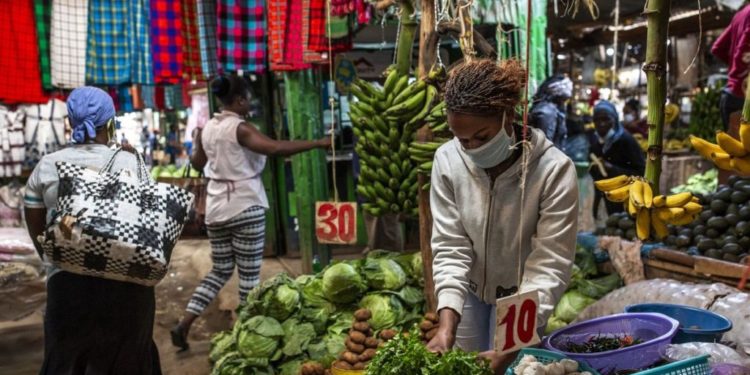In July, headline inflation decreased for the second consecutive month due to slight reductions in key household expenses such as electricity and fuel. The inflation dropped to 4.3% in July 2024 from 4.6% in June 2024.However, consumers faced increased costs in other areas.
According to a survey by the Kenya National Bureau of Statistics (KNBS), the price of a 13kg cylinder of cooking gas rose to KES 3,219.6 in July 2024 from KES 3,214.0 in June. A year ago, this item retailed at KES 2,787.8. The national average retail price for a kilo of cabbages increased to KES 78.4 in July from KES 75.5 in June, while a litre of cooking oil went up to KES 328.7 from KES 326.4 in the same period.
Despite these increases, the cost of living in July eased to 4.3 percent from 4.8 percent in June, thanks to reductions in other items such as electricity, fuel products, and select food items, as reported by KNBS. Specifically, the Food and Non-Alcoholic Beverages Index fell by 0.5% between June and July 2024. Prices of tomatoes, brown wheat flour, onions (leeks and bulbs), and sifted maize flour decreased by 5.5 %, 4.2 %, 4.1%, and 3.3% , respectively.
The Housing, Water, Electricity, Gas, and Other Fuels Index also declined by 0.4 % during this period, driven by price drops of 9.4 % for 200 kWh of electricity, 4.4 % for 50 kWh of electricity, and 0.8 % for kerosene.
Additionally, the Transport Index saw a 0.1% decrease due to reductions in petrol and diesel prices by 0.5% and 0.9%, respectively. Current retail prices in Nairobi stand at KES 188.84 for Super Petrol, KES 171.60 for Diesel, and KES 161.75 for Kerosene.
Understanding Inflation
Inflation measures the rate at which prices for essential goods and services increase, indicating how quickly money loses its purchasing power. Lower inflation generally benefits consumers financially. The Central Bank of Kenya regulates money supply by adjusting interest rates to sustain economic stability.












